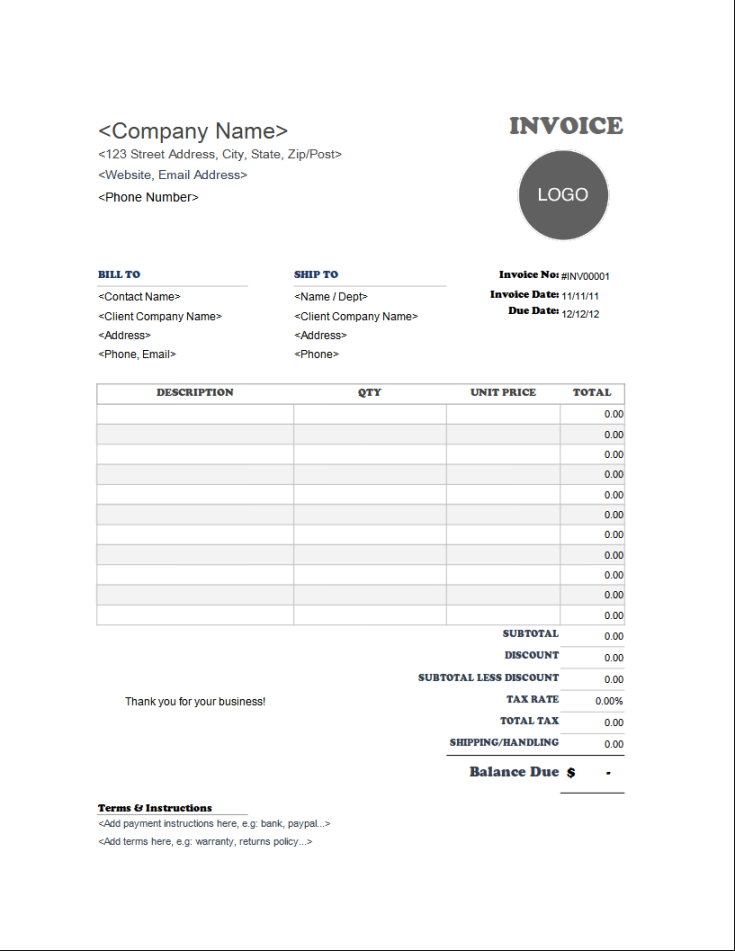A well-designed generic invoice template is an essential tool for any business, providing a professional and consistent format for documenting sales and transactions. This guide will walk you through the steps of creating a professional generic invoice template in Word, focusing on the design elements that convey professionalism and trust.
Essential Elements of a Generic Invoice Template

1. Header: The header should contain your company’s name, logo, and contact information. This information should be prominently displayed at the top of the invoice.
2. Invoice Number: Assign a unique invoice number to each document for easy tracking and reference.
3. Invoice Date: Indicate the date the invoice was issued.
4. Customer Information: Include the customer’s name, address, and contact information.
5. Invoice Terms: Specify the terms of payment, such as the due date and any applicable discounts or penalties.
6. Itemized List of Goods or Services: Clearly list each item or service provided, along with the quantity, unit price, and total cost.
7. Subtotal: Calculate the total cost of goods or services before taxes and fees.
8. Taxes: If applicable, list any taxes that will be charged, such as sales tax or value-added tax (VAT).
9. Total Due: Calculate the final amount due, including the subtotal, taxes, and any additional fees.
10. Payment Information: Provide instructions for making payment, such as the preferred method (check, credit Card, or electronic transfer) and any required information.
11. Authorized Signature: Include a space for an authorized representative of your company to sign the invoice.
Designing a Professional Invoice Template
1. Choose a Clean and Professional Font: Opt for a font that is easy to read and visually appealing. Sans-serif fonts like Arial, Helvetica, or Calibri are often good choices.
2. Use Consistent Formatting: Maintain a consistent style throughout the template, using the same font size, spacing, and alignment for all elements.
3. Create a Clear Layout: Organize the information on the invoice in a logical and easy-to-follow manner. Use headings, subheadings, and bullet points to break up the text and improve readability.
4. Choose a Professional Color Scheme: Select colors that complement your company’s branding and create a visually appealing template. Avoid using too many colors, as this can make the invoice look cluttered.
5. Incorporate Your Company’s Branding: Include your company’s logo, tagline, and other branding elements to reinforce your identity.
6. Use White Space Effectively: Leave plenty of white space around the text and graphics to make the invoice more visually appealing and easier to read.
7. Proofread Carefully: Before finalizing the template, carefully proofread it for errors in grammar, spelling, and formatting.
Tips for Creating a Professional Generic Invoice Template
Keep it Simple: Avoid using overly complex designs or excessive graphics that can detract from the clarity and professionalism of the invoice.
By following these guidelines and incorporating the essential elements of a generic invoice template, you can create a professional and effective document that will help your business manage its finances and maintain a positive relationship with your customers.